Toby Harris, Oceanography, UC Davis
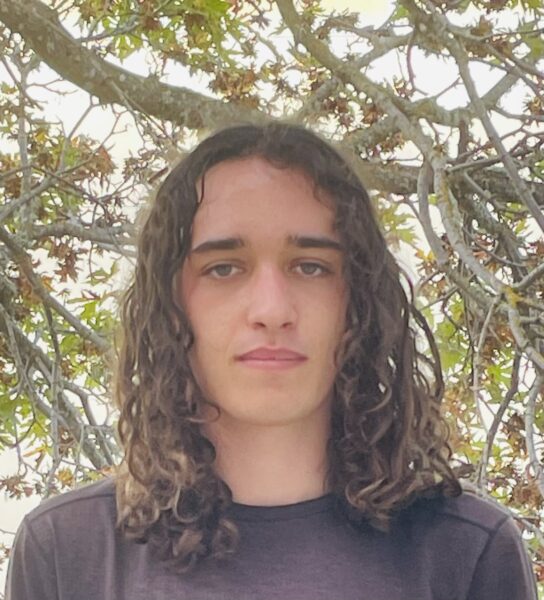
How did you know this path was right for you?
It’s something that I’m passionate about studying and it’s something that really interests me. From what I’ve seen from people who work in the field, it seems like there’s a lot of opportunity and versatility there, which has a lot of appeal [to] me.
What has helped you follow your path?
I’ve done six years of volunteering at the Marine Science Institute in Redwood City and I’m going to work there this summer. I took an oceanography 101 class at the College of San Mateo, just to have the hands-on experience from MSI but also [to] get more formal classroom education and see what my classes might be like in college.
Have there been people who inspired you to go on this path?
A lot of people that I worked with and volunteered for at MSI inspired me because they came from a very diverse range of backgrounds. Some of them studied all sorts of different things in high school and in college but they all were able to pursue careers in marine science … My grandfather was a water quality scientist [who] has inspired me to look into more of the chemistry and policy aspects of it [as well].
DJ Djingueuzian, Music Composition, College of San Mateo
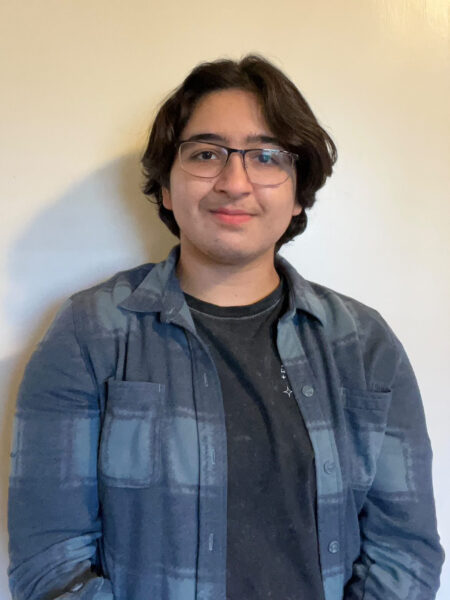
Why did you decide to go into music?
I’ve always been drawn to music. When I was young, I would always make up songs and mess around with instruments I found. That started to grow when I joined band [playing trumpet] in middle school. ….Before then I would take guitar lessons and then drum lessons. But during band in school, I met lots of nice people. I’ve had great band directors. And it’s really made me interested in pursuing music as a career.
How did you know music was right for you?
I knew it when I started making my own compositions. When I make music, it’s a very passionate feeling that I don’t really get from anywhere else. And when I think about that, it’s really the only option I can see for developing a career.
What have you learned from your experience with music and post-high school pursuits?
I’ve learned that creating your own work is a very fulfilling experience. It’s also very fulfilling to seek out a career that’s based on your own interests and not societal pressures or familial pressures. You really need to follow your heart.
Can you talk about why community college stood out to you?
It stood out to me because I come from a low-income household and I wouldn’t have the financial status to start out a four-year university and put all that money towards it. I’m also very drawn to the life I already have at home, with my family and the community I have around here, so I want to stay around home for the time being. For students in a situation like mine, I definitely think that community college is an option worth looking into.
Nailah Blake, Pilot Training and History, UC Davis

What is your post-high school path to becoming an airplane pilot?
The actual track to becoming a pilot [that] I’m choosing to take is doing my training outside of a college program. I chose that mainly for financial reasons and flexibility. [Besides that,] I’m going to be attending kind of a normal college situation majoring in history. It’s something I’m genuinely interested in and that will also function as a backup in case for whatever reason my piloting plan doesn’t work out.
What brought you to piloting?
I got into piloting, or aviation in general, … in 2019, starting with aviation photography. Through that, [I] met a lot of other people interested in aviation, a lot of pilots. Ever since that first flight [in] a small plane [where] I got to be at the controls [and] fly a little bit …I knew it felt right. I really enjoyed it and I kind of knew it was what I wanted to do, so it was just a gut feeling.
What advice would you give to people that are looking to figure out what they want to do after high school?
That’s really tough because, unlike a lot of people I know, I kind of had it figured out for a long time. And I know for some people that’s not always easy. I’d say don’t push yourself too hard because I’ve seen a lot of friends who don’t know what they want to do and they see someone like me where it’s been very clear and they stress themselves out [thinking] ‘why am I not like this? Why is this not clear for me?’ So I’d just say keep your options open. Don’t stress yourself out. Give yourself the time to figure yourself out … You don’t have to have it all figured out in high school for sure. I think, even for me, even though I have the end goal in mind, I still have a lot to figure out about how I’m gonna get there.
Ariana Gavidia, Firefighting, College of San Mateo
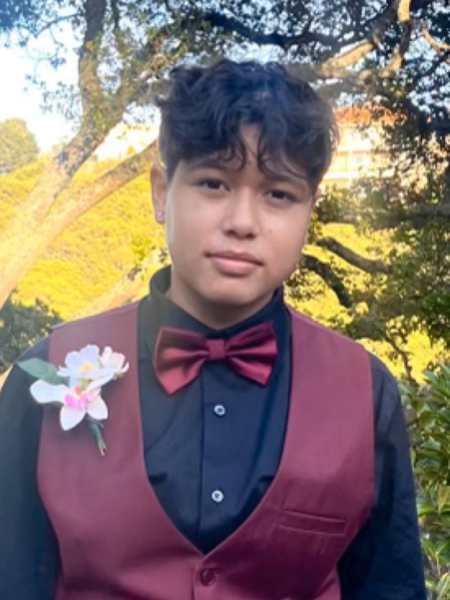
Can you talk about what path you’re taking after high school?
I’m going to [the College of San Mateo] for two years, getting an associate’s degree in fire technology, and then hoping that once I’m in the Fire Academy, I go on to … do firefighting as soon as possible.
What brought you to firefighting?
I didn’t really know what I wanted to do after high school, but I always had a feeling that I wanted to do something helpful to the community and fire academy just seemed a lot better for me. You stay in shape and you’re able to help a lot of people, and I don’t think I’d be afraid to risk my life to help someone else’s.
How’d you know firefighting was the right path for you and what have you done to bring yourself further towards this path?
It seemed [like] the most motivational [path] for me;, like I was more motivated to do that than anything else, especially if it meant helping someone … I’ve been doing a lot of research into fire technology and all the prerequisites for it, and I’ve been doing a lot of workout drills for it specifically. I know you have to work on a lot of cardiovascular [health], so I’ve been running a lot more.
What has been your biggest challenge?
My biggest challenge is probably having asthma. That’s gonna be my big challenge because a big part of it is you have to breathe … But I spoke to a firefighter once and he said that a lot of firefighters actually have asthma. So I’m hoping I can overcome that challenge.
Catalina Kollings, gap year
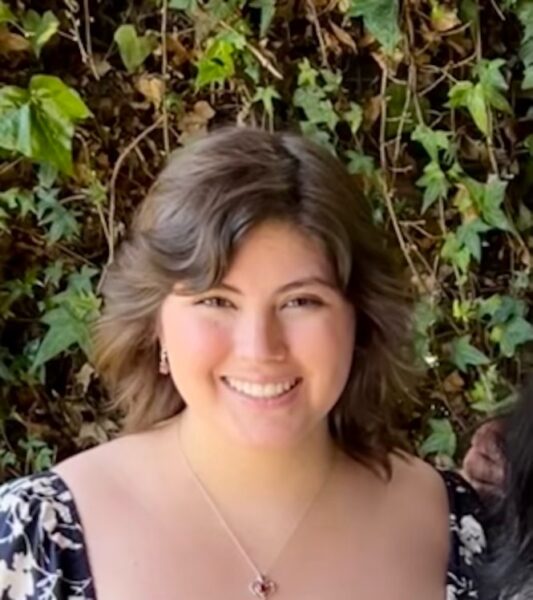
What brought you to this post-high school path?
I was diagnosed with leukemia in the middle of high school, so I’ve had a very unique high school experience, along with the COVID[-19 pandemic] experience everyone had. I really wanted to have time to heal more and really get my footing and [the] independence that people usually get during high school. They usually get their license and a job … but I didn’t really get to do that because I had to heal. … If I were to thrust myself into college in the next couple of months, I feel like that’d be moving too quickly. I wouldn’t have time to process everything, [and] I wouldn’t have time to establish my own footing.
How did you know this would be right for you?
Because every time I looked into my future, it was very anxiety-inducing, not just the normal way that it used to be, like instead of excitement mixed with a little anticipation, it was more like fear. And so I wanted to make sure that when I looked at college, I saw it as an opportunity, not something I had to do.
Were there challenges that you faced when making this decision?
One of them was with myself, internally. When I was younger, I always planned, high school, college and then whatever my career [would be]—if I needed more college [education] I’d do that. … There was that internal struggle—I did not really know what other options there were. … Also, my parents [wanted] me to at least apply to some colleges, but in the end, I think I talked to [them] and I had to take everything into terms and [take] everything at face value, then I was able to really make that decision and be comfortable with it too.
What have you learned from this decision and what advice would you give to others?
Everyone has their own path—that sounds so corny—but everybody has their own path and it’s very unique. Some people have really big bumps in the road and some people have really smooth paths. And my path, it kind of forked and I have to take a different path. So I learned that there’s no judgment in whatever path you take. It’s really what’s best for you right now and in the long run. I would say … don’t think of [taking a gap year] as this big life-changing decision, because you can [still] always go to college … and you can always take another gap year if you need to. … Make sure you have a support system and make sure you are considering every option.
Derik Ardiano Gomez, Electrician, Trades Introduction Program at College of San Mateo
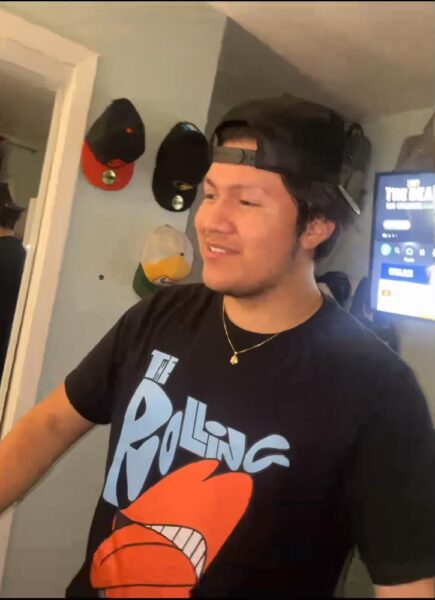
What are you doing after high school?
[I’m going to] join the Trades Introduction Program … because I just [want to] work and get money and help my parents out with rent … I’m planning on doing drywall or electrician, one of those two.
What is trade school like?
It’s like school, technically: five months where you go twice a week from six to nine. It’s basic training [where] you learn, and while you’re learning and going to the school they pay you.
Why did this path feel right for you?
Because, honestly, I just don’t want to continue school — like [going to] college and all that, [and then] graduating school just to go to more school. I don’t want to do that, I just want to work.
What drew you to drywall or working as an electrician?
I see it a lot on social media and to me it looks fun. It looks like I could make a good living and … they say that you can make a career out of it. So to me, that sounded pretty good.
What advice would you give to others based on what you’ve learned?
Pursue what you want. Don’t pursue what your parents want because at the end of the day, it’s what you want, not what they want.
Aria Khanna, Psychology and pre-medical track, gap semester into New York University
How did you decide that this was right for you?
After tenth grade, I started getting into [psychology]. I was watching a lot of crime documentaries, and the psychological effects that has on criminals [was something] I found myself really interested in … I’m also interested in the mental health field, so I combined those two. I want to be a psychiatrist, so [I] have to go to medical school to do that.
How did you know a gap semester was the right choice for you?
I actually didn’t. NYU was my dream school, I’ve always wanted to go there. I love New York. I applied for like every program that they had … fall start, spring start, and then a full gap year. And I applied for every location they had [and] 10 majors, but I got my first choice for location and my major. And for the gap semester and gap year, everything was my first choice, so they just put me as spring.
What makes the gap semester an enjoyable or helpful experience?
I think you can get a lot of experience and expertise in [before college], whether that be through [a] job or internship. You can’t really do that when you’re doing school on top of everything. [But in a gap semester], you can have a full-time internship. And there’s just a lot more opportunities that come up for a gap semester.
What did you learn from your experience from your college application process that could help others?
Honestly, my stats were really, really bad. … I would always compare myself to people that got into NYU. My biggest advice is just to not compare yourself to other people, like don’t search on TikTok “stats for this school.” It’s just not [going to] help your decision later. Nothing is going to change the outcome of your decision, so just don’t stress over it.
Branson Wong, user experience design, school/path?
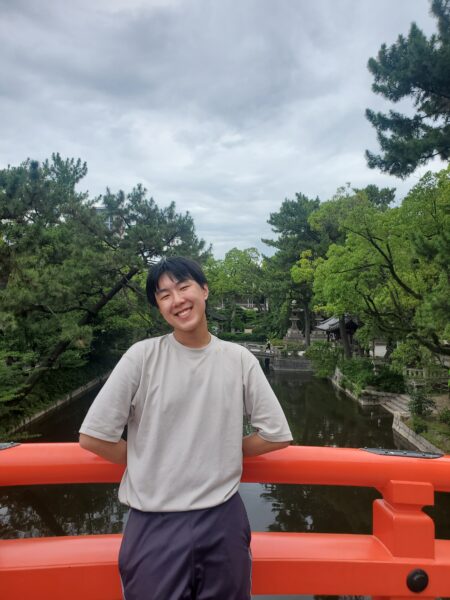
What made you want to go into UX design?
I definitely wanted to do something that [can help me] keep up with technology, something more modern, but [I] also want to be creative. I like drawing, I like doing art, so as long as I’m able to be creative, it’s a job I’m happy with.
What advice would you give for others trying to go into UX?
Just explore how you like to express yourself. Because if you’re doing design, you need to feel like you … have a passion for an art. If you’re able to figure out what you like to do, it will inspire you throughout your school [journey].
What have you done that helped you make the decision to follow this path?
A lot of research. I looked at a lot of schools, but … it wasn’t really like I looked and I saw things I liked. It’s more like I [said to] myself, ‘what do I want to do?’ For me, I want to work with people and I want to be able to make something. And for that, UX fit that criteria and I was like, ‘yeah, this is a really cool career to pursue.’
What are some takeaways from this process of choosing a path?
When I was exploring the path of art [or just] being creative, [I found] you can incorporate that with a lot of other projects. For example, [for] my friend, when they were running for student government, I was able to make a cool mascot [by] using my ability to draw. [Also,] my friend was making this game and I was able to use my skills to create assets and design [user interface]. If you’re going down a field like this, it’s really cool because you could work with a lot of other people in different fields and it still enhances the product, which is really interesting.
Ashley Wong, biology, University of British Columbia
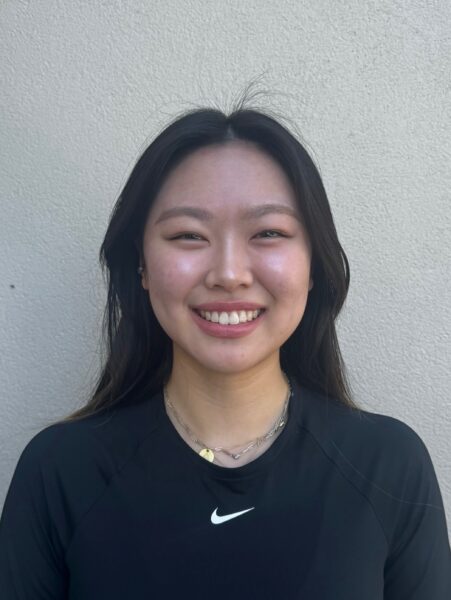
How did you know this path was right for you?
I’m still not sure, [so] I’m looking into biology first and deciding whether or not I want to do [a] pre-medical [pathway] a few years into college. I do know I want to do biology because it’s an area of science that I really enjoy and I would like to dedicate my future to it.
What advice would you give for others trying to follow this path?
Do [your] research about [the] prerequisites that the colleges you want [to go to] require because lots of graduate schools and pre-med programs don’t accept [Advanced Placement] credit from high school so I’ll … end up taking a lot of my classes again in college. I think having a clear path and plan of what you will do each year will be helpful even though I know it can be hard. I would also look into volunteering and internships early.
What steps did you take and what would you advise others to take to prepare for this path?
To be honest, I didn’t take as many steps as I wanted to because I didn’t know much about what I should do to prepare myself for the future. It’ll be a long and rough road ahead because medicine takes a long time and you should be prepared for school expenses, long hours of studying and work, finding balance between personal life, and student life and finding extracurriculars.
Why did you choose to go to UBC?
Well, I had narrowed it down to two options: [New York University] and UBC, but I chose UBC because I wanted to save money for medical school and I’ve been to the campus before since my cousin graduated [from] there. Overall, UBC is just a really good school and I like Vancouver because I feel like it’s similar to the Bay Area.




